
A Ph.D. dissertation doesn’t always have to be a paper, as demonstrated by ethnomusicologist Julian Saporiti

A Ph.D. dissertation doesn’t always have to be a paper, as demonstrated by ethnomusicologist Julian Saporiti
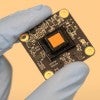
Bio-FlatScope dives deep for useful data
The lensless Bio-FlatScope is a small, inexpensive camera to monitor biological activity that can’t be captured by conventional instruments. The device could eventually be used to look for signs of cancer or sepsis or become a valuable endoscopy tool.
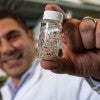
‘Drug factory’ implants eliminate ovarian, colorectal cancer in mice
Rice bioengineers have created tiny implants that activate immune cells to destroy cancer.

Xue Sherry Gao wins CAREER Award
Rice engineer Xue Sherry Gao has won a prestigious NSF CAREER Award to create versatile new toolkits for controlling gene expression.

Marcia O’Malley named AIMBE fellow
Rice mechanical engineer Marcia O’Malley has been named an AIMBE fellow in recognition of her contributions to rehabilitation robotics, haptics and robotic surgery.

NEST360 wins 2021 Innovating for Impact Partnership Award
NEST360, an international alliance with roots at Rice University’s Rice 360º Institute for Global Health, has won the Global Health Technologies Coalition 2021 Innovating for Impact Partnership Award for its efforts to end preventable newborn deaths in African hospitals.

Robotics expert Marcia O’Malley, associate dean for research and innovation in Rice’s Brown School of Engineering, co-authored a retrospective in this week’s Science Robotics about the past decade's advances in medical robotics.
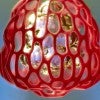
Rice professor, grad student strike $45 million deal for startup
A startup biotech company founded by a Rice professor and a graduate student in 2018 has been acquired in a deal that could be worth as much as $400 million.
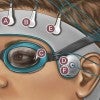
US Army backs ‘sleeping cap’ to help brains take out the trash
Rice engineers are developing a noninvasive device to understand how the brain disposes of metabolic waste during sleep.

Maryland health care payment model reduces costs and complications, study shows
Maryland health care payment model reduces costs and complications, study shows

Trailblazing Rice bioengineer is turning cells into disease fighters
Rice University bioengineer Isaac Hilton has been awarded an NIH Trailblazer Award to create synthetic circular DNA that can be used to reprogram cells as disease fighters.
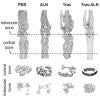
Rice, Baylor win defense grant to advance metastasis study
Rice University chemist Han Xiao and biologist Xiang Zhang at Baylor College of Medicine have won a $2.3 million Department of Defense grant to expand their efforts to halt bone cancer metastasis.
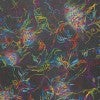
When many act as one, data-driven models can reveal key behaviors
Data science approaches can reveal subtle clues about the origins of such collective behaviors as aggregation of bacteria.
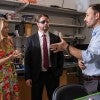
Rep. Dan Crenshaw hosts health care summit, tours neuroengineering labs
U.S. Rep. Dan Crenshaw (left), R-Texas, hosted his third annual Healthcare Innovation Summit July 23 at Rice University's BioScience Research Collaborative (BRC) in conjunction with the university's Institute of Biosciences and Bioengineering.
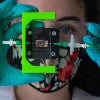
Rice team creating insulin-producing implant for Type 1 diabetes
Rice University bioengineers are using 3D printing and smart biomaterials to create an insulin-producing implant for Type 1 diabetics.